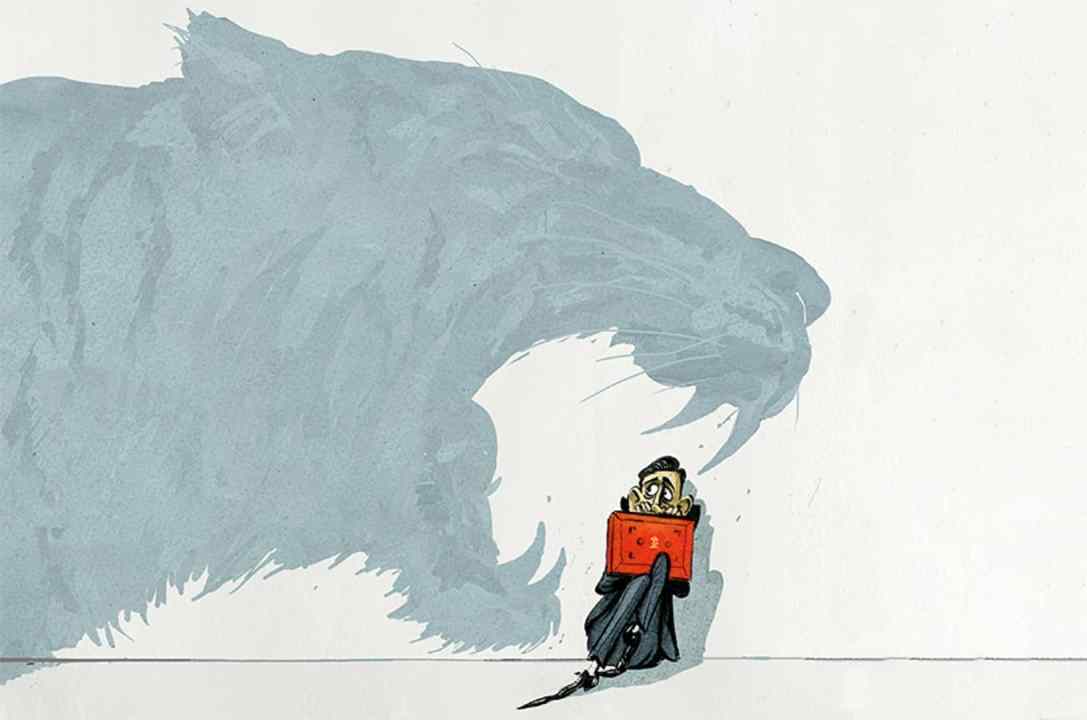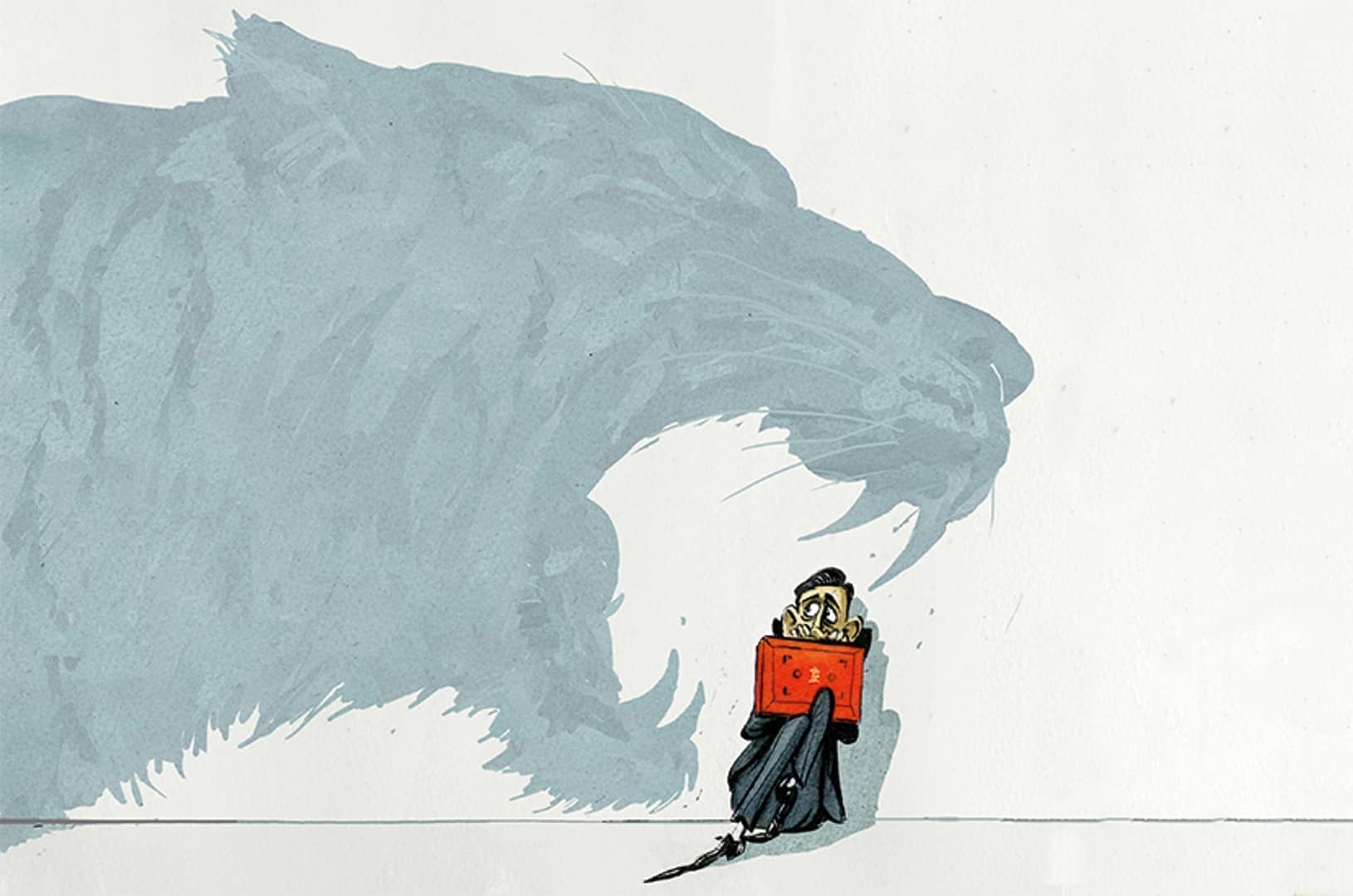Next month, Rishi Sunak will break a Tory manifesto pledge by increasing National Insurance as the tax burden heads to a 77-year high. By declining to increase departmental spending for inflation – and using the saved money to cut the basic rate of income tax – the Chancellor has started a cautious fightback against Big Government conservatism.
Much has changed in the two years since Sunak took over as Chancellor. Back then, inflation appeared dead and buried: long-term forecasts did not envisage it going above 2 per cent. Sajid Javid, Sunak’s predecessor, said he expected rates to be ‘low for long’ – and planned to borrow and spend on that basis. The Tories had quite simply lost their fear of inflation. Now inflation is back and has pushed government debt interest payments up by £2.6 billion in the past month alone.
Changing times call for a change in outlook. Sunak has gone ahead with the National Insurance increase, so the government will now take an extra 2.5 per cent of everyone’s salary: 1.25 per cent from the employer and 1.25 per cent from the worker. But by aligning the National Insurance starting threshold with that for income tax – lifting it from the planned £9,880 to £12,570 – he will ease the financial burden for the majority. Cutting income tax by 1p from 2024 will reduce the effect of his various tax rises, albeit not by much. This is a compromise with the Tories who argued that it was madness to increase such a tax with inflation heading to a 40-year high.
Sunak has restored a degree of discipline to government spending
Sunak refers to the new National Insurance rate as a ‘health and social care levy’. He says that in future any extra healthcare costs will have to be met by increasing this levy. The logic is that such a move will help lower future spending, since anyone who argued that the NHS is underfunded would also have to accept that they were arguing for higher National Insurance.
As Sunak sees it, the furore over the National Insurance increase – which will compound the cost-of-living crisis – is welcome because it focuses minds. If we don’t want it, then what government spending do we cut? He has answered this by freezing government departments while accepting that inflation is set to hit 8 per cent. This will amount to a spending cut of up to £17 billion. Sunak, praised so highly after splashing around furlough cash, may soon be accused of austerity.
Until now Boris Johnson has splurged his way through every crisis. But Sunak has restored a degree of discipline to government spending. The Prime Minister who stood for office on a pledge not to increase taxes could still keep his word.
But overall the Sunak effect is still to raise taxes. His giveaways are smaller than the amount of extra tax he is taking by refusing to increase income tax thresholds by inflation – taking millions into higher-rate tax bands, which will raise billions for the government. Government spending as a share of GDP will fall slightly as a result of this Budget: it is being salami-sliced. But slowly. For the next few years, state spending is still expected to remain at the highest sustained level since the 1970s. So we still have a government that is taxing – and spending – more than any recent Labour government dared to do.
The question for the Tories now is whether they can navigate the next few years while keeping the debt in check and reducing taxation – as per the 2019 election promise. The obvious challenge comes in military spending, and the new security dynamic in Europe. Germany is spending an extra €100 billion on its military this year alone, one of many countries to increase defence spending. Britain is so far not doing the same. Will this change, given the challenges ahead?
An obvious option is international aid. Britain spends 0.5 per cent of GDP which, while lower than the 0.7 per cent set in David Cameron’s time, is still one of the highest rates of any major country. By keeping it at this level – rather than raising it back to 0.7 per cent as per the current plan – the military could be rebuilt in a way that would deter further Russian aggression. Two million Ukrainian refugees testify to the humanitarian point of defence spending: when would-be invaders are not deterred, the results are calamitous.
As Sunak told the House of Commons, extra borrowing is no longer cost-free. The long, benign period when governments could borrow huge amounts of cash at next to no cost is over. We are back to an age of tough choices – and this Budget marks the return of hard-nosed fiscal conservatism. If the government is to help with the cost of living – now rising at the fastest rate since records began – it must stop contributing to the problem with higher taxes. This much is obvious. Sunak has taken some tentative but welcome steps this week in this direction. The test, now, will be whether the Tories can stick to this course.







Comments